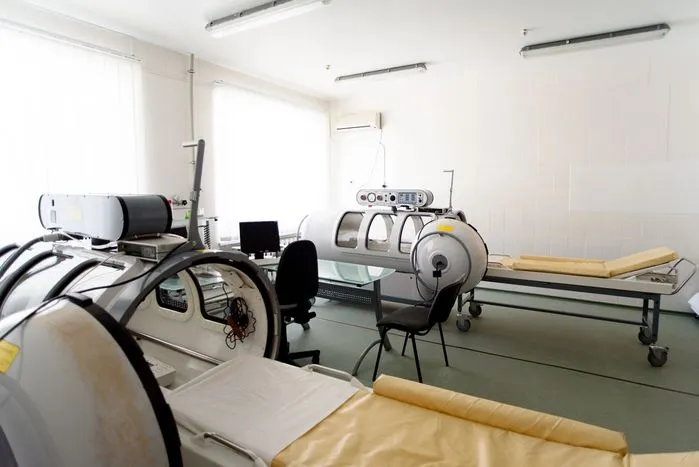Proper wound healing is the result of a complex interplay of physiological processes aimed at achieving injury resolution. Often, while wound care professionals focus on modifying physical, biological, and metabolic factors crucial to wound healing and closure, the role of educating the patients is often overlooked. This article will discuss the role of patient education in optimizing the rate of wound healing.
Wound Healing: Why Is Patient Education Essential?
At present, many innovations have been made in facilitating faster, more optimal wound care for individuals with acute or chronic wounds. Pharmacological interventions, medical and surgical wound care have all significantly improved in providing the framework for optimized wound repair. Regardless of effectiveness, interventions will yield little actual measurable improvements if the patient involved does not cooperate with wound care experts and caregivers involved in the treatment process.
Patient non-compliance with wound care strategies is often due inadequate communication of the treatment process. Poorly addressed concerns and misconceptions about treatment and prognosis will result in patients defaulting clinical visits, medications, and proper wound care measures. As such, it is crucial that wound care professionals and caregivers involved in wound management educate affected individuals on all aspects of their treatment while emphasizing the importance and benefits of compliance with instituted therapies.
Critical Components of Patient Education
There are some crucial aspects of patient education on wound healing that healthcare providers must emphasize as part of a holistic treatment strategy. Extensive information should be provided to patients on each of the following:
- Lifestyle modifications
- Adequate diet and proper nutrition
- Medication compliance
- The effect of co-morbidities on wound healing
- The relevance of adherence to home/facility based wound care
Lifestyle Modifications
Before the onset of acute or chronic wounds, many patients often lead lifestyles that might negatively impact the rate of wound repair. Counseling on the effects of negative lifestyle choices like smoking and excessive alcohol usage must be done early in the treatment cycle to improve outcomes.
Adequate Diet/Proper Nutrition
The role of adequate nutrition in wound healing cannot be overemphasized. An adequate dietary supply of nutrients will optimize wound repair processes. Patient education on diet should encourage the consumption of foods rich in antioxidants, bioflavonoids, and polyphenols. Examples of suitable foods include berries, tomatoes, walnuts, pomegranates, oats, carrots, spinach, and dark chocolate.
Medication Compliance
Wound healing strategies often integrate various medications that help to boost the overall repair process. Antibiotics and pain medications are frequently prescribed by health practitioners managing individuals with acute or chronic wounds.
To prevent non-compliance resulting from improper counseling on the benefits of medications as well as side effect profile, physicians should ensure they exhaustively address the concerns of their patients on each medication they prescribe. Additionally, patients should be encouraged to promptly report any undesirable symptoms following drug use to their healthcare provider and should receive adequate reassurances or drug or dose changes when indicated.
The Effects of Co-morbidities on Wound Healing
Diabetes, hypertension, and peripheral arterial disease are common long-term medical conditions that could hamper optimal wound healing. Patients presenting with acute or chronic wounds with a history of these conditions require specialized counseling and education on the impact their underlying medical conditions could have on their wound healing outcomes. Patients should be made to understand the link between management of comorbidities (medical or surgical care) and an overall improved wound repair outcome.
Adherence To Home/Facility-based Wound Care
Depending on the severity, wound care can be provided at home, on an out-patient basis, or in-patient care in a long-term care facility. Regardless of the location of care, the cooperation of the patient involved is required to successfully conduct wound care activities.
Patients should be counseled on the dangers of defaulting wound inspections, dressing, and debridement appointments and encouraged to attend clinics as at when due. Wound care education should also teach patients and their caregivers how to conduct home wound care. Health staff should also train patients on danger signs that might indicate a poor wound healing process and encourage them to promptly report any found.
Who Should Educate Patients on Wound Healing?
The responsibility for properly educating patients on various aspects of their wound repair process rests on all members of the healthcare staff involved in the treatment process. Nurses, physicians, physical therapists, psychologists, and all other healthcare personnel who come in contact with patients during their wound healing journey must do their best to encourage, counsel, and properly educate them on all aspects of their care.
Telehealth and Patient Education
Increased implementation of telehealth strategies by physicians, nurses and other healthcare staff has made the provision of sufficient information to patients much easier. With the presence of the ongoing COVID-19 pandemic, remote patient counseling and health education is being advocated as much as possible. Telehealth is advantageous in this regard as it allows patients receive appropriate and timely information on their wound healing progress from the comfort of their homes. Phone calls and videoconferencing sessions conducted by their caregivers allow patients to avoid unnecessary exposure to potentially infectious settings within healthcare facilities.



.webp)

.avif)